
 |
 |
|
| About Us | Essential Library | Read Past Issues | Resources | Composer Links |
post-war avant-garde of John Cage, Morton Feldman, Pierre Boulez, Karlheinz Stockhausen, died last Tuesday at his home in Rye, New York.
Brown was born in Lunenburg,
Brown has been a major force in
After
then he continued to develop his
Brown has been composer-in-residence at the California Institute
of the Arts,
Brown had also been guest
|
|
Travels
with Sondheim: Pacific
Overtures
Classical Grammy Winners |
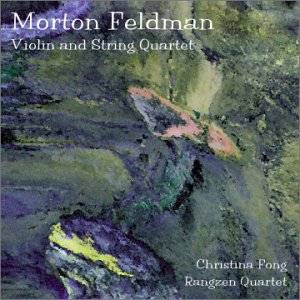
Violin and String Quartet Composer: Morton Feldman Performer: Christina Fong, Karen Krummel, et al. Ensemble: Rangzen Quartet Listening to this epic 2-CD chamber work is like watching a large block of ice melt for nearly two hours--excruciating sameness, tantilizing variation, in equal measures. A labor of love by all involved and the kind of thing that only small, independent labels will do. Bravo OgreOgress Productions |
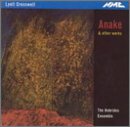
Anake & Other Works Composer: Lyell Cresswell Performer: Daniel Bell, William Conway, et al. Nmc Records - #77 Compositions for solo instruments (other than the piano) rarely get recorded which is a shame because sometimes--as in this case--the results are spectacular. New Zealand-born British composer Cresswell's warm and passionate solo turns for the violin, cello, flute, and piano are given convincing readings by members of The Hebrides Ensemble. |
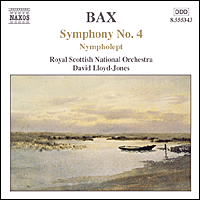
Symphony 4 / Overture / Nympholept Composer: Arnold Bax Peformers Lloyd-Jones, Royal Scottish Nat'l Orch Naxos - #8555343 Not in Vaughn Williams or Arnold's class as a symphonist, Bax nonetheless has a highly invidual voice and offers tremendous pleasures for those who look for less traveled paths. |
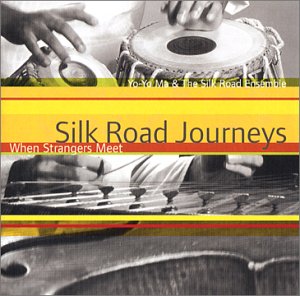
Silk Road Journeys Composer: Michio Mamiya, Franghiz Ali-Zadeh, et al. Performer: Yo-Yo Ma Ensemble: Silk Road Ensemble Sony - #89782 |
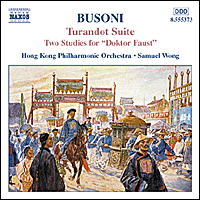
Turandot Suite Composer: Ferruccio Busoni Performers: Wong, Hong Kong Phil Orch Naxos - #8555373 Little-known suite that Busoni extracted from his incidental music to Gozzi's play, Turandot. Completed in 1905, and in eight descriptive sections, it is engaging late Romantic with hints of Straussian darkness. The Saraband and Cortege are from Busoni's better-known Doktor Faust. |
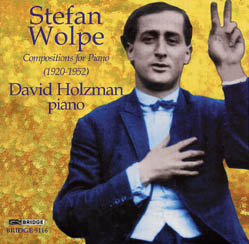
Compositions for Piano (1920-1952) Composer: Stefan Wolpe: Performer: David Holzman, piano BRIDGE 9116 From the nice people at Bridge Records comes an invaluable look at an early and largely forgotten modernist just in time for the Wolpe Centenary (1902-2002) Pianist
Holzman wins the uphill battle with such Wolpe knuckle-busters as the Sonata
No. 1 "Stehende Musik" (1925), the aptly named
|
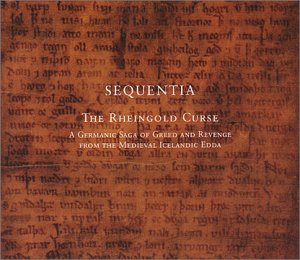
The Rheingold Curse: A Germanic Saga of Greed and Revenge from the Medieval Icelandic Edda Ensemble: Sequentia Marc Aurel Edition - #20016 Wagner's mother lode. Apocalyptic texts, atmospheric performances, bring to shattering life the age of the Vikings and the Valkyries when Gods and mortals jousted for the medieval soul. Thoughtful music for an age in which evil men once more live in caves and wreak havoc upon their fellow men. |
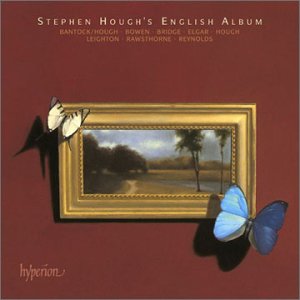
Stephen Hough's English Piano Album Composer: Alan Rawsthorne, Stephen Reynolds, et al. Performer: Stephen Hough Hyperion - #67267 Stephen Hough is among the most talented pianists today and also one of the most adventuresome. Rather than concentrating on the surefire crowd pleasers, he has followed his own tastes which have taken him down a less traditional path. His focus on neglected works by less-known composers is never less than rewarding and particularly so in this CD which showcases virtuoso piano pieces from English composers like Alan Rawsthorne and Stephen Reynolds as well as Elgar and Bridge. A delight from start to finish. |

Speaking Extravagantly Composer: David Stock Performer(s): Cuarteto Latinoamericano innova 563 Stock blends influences from Ives to minimalism, from Bartok to jazz, and from synagogue music to Schoenberg into a fresh and imaginative style of dramatic sweep and lyrical flight. His close collaboration with Cuarteto Latinoamericano, one of the world’s outstanding chamber ensembles, has produced a recording of great emotional power and driving rhythm, with blazing colors and a wide dynamic and expressive range. |
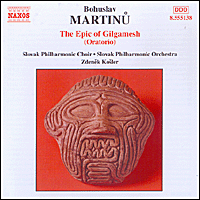
The Epic of Gilgamesh Composer: Bohuslav Martinu Conductor: Zdenek Kosler Performer: Ludek Vele, Stefan Margita, et al. Naxos - #8555138 Gilgamesh was an historical king of Uruk in Babylonia, on the River Euphrates in what is now modern Iraq; he lived about 2700 B.C. Many stories and myths were written about Gilgamesh, some of which were written down about 2000 B.C. in the Sumerian language on clay tablets in the script known as cuneiform and which still survive, providing continuing inspiration for writers and poet and musicians. One of the most inspired of these was Czech composer Bohuslav Martinu, who wrote this magnificent choral masterpiece based on the legend in 1955--only a couple of years before his death. Like virtually everything Martinu wrote, this one is indispensible. |
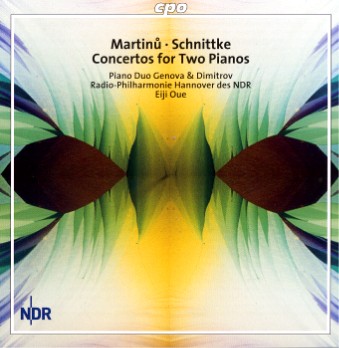
Concertos for Two Pianos Composer: Bohuslav Martinu, Alfred Schnittke Conductor: Eiji Oue Performer: Kathrin Rabus Cpo Records - #999804 An inspired pairing of works for two pianos by two of modern music's real giants. Martinu's concerto is big, sprawling and filled with musical color; Schnittke's is restrained with tensions that build into moments of momentous relief. Taken together, a testimony to the power of the imaginative to produce different, yet equally compelling, solutions to the same problems.
|
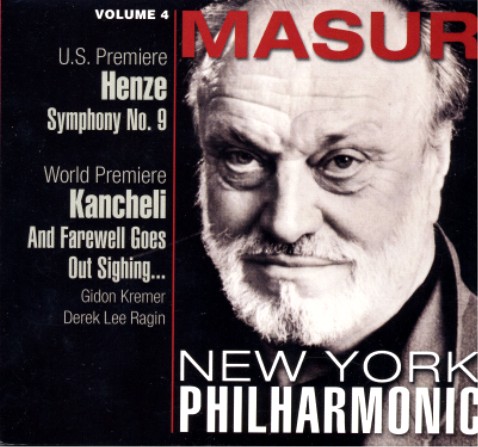
Symphony No. 9 Composer: Hans Henze Performer: NYPhilharmonic Berlin Radio Choir No record can quite capture the excitement of a live performance, but having been there the night the Henze 9th was recorded, I can testify that this CD comes very close to capturing the epic, shattering, passionate, heartbreaking pain of this incredible work. The Philharmonic plays magnificently, and the Berlin Radio Choir sings with total commitment this setting of seven harrowing poems by Hans-Ulrich Treichel, based on Anna Seghers's wartime novel "The Seventh Cross," about the re-capture and martyrdom by crucifixion of seven concentration camp escapees. No one who listens to this work will ever forget it. |
 |
Publisher: Duane Harper Grant (212) 582-4153 Editor: Jerry Bowles (212) 582-3791 Contributing Editor: Deborah Kravetz (C) Sequenza/21 LLC 2000 |